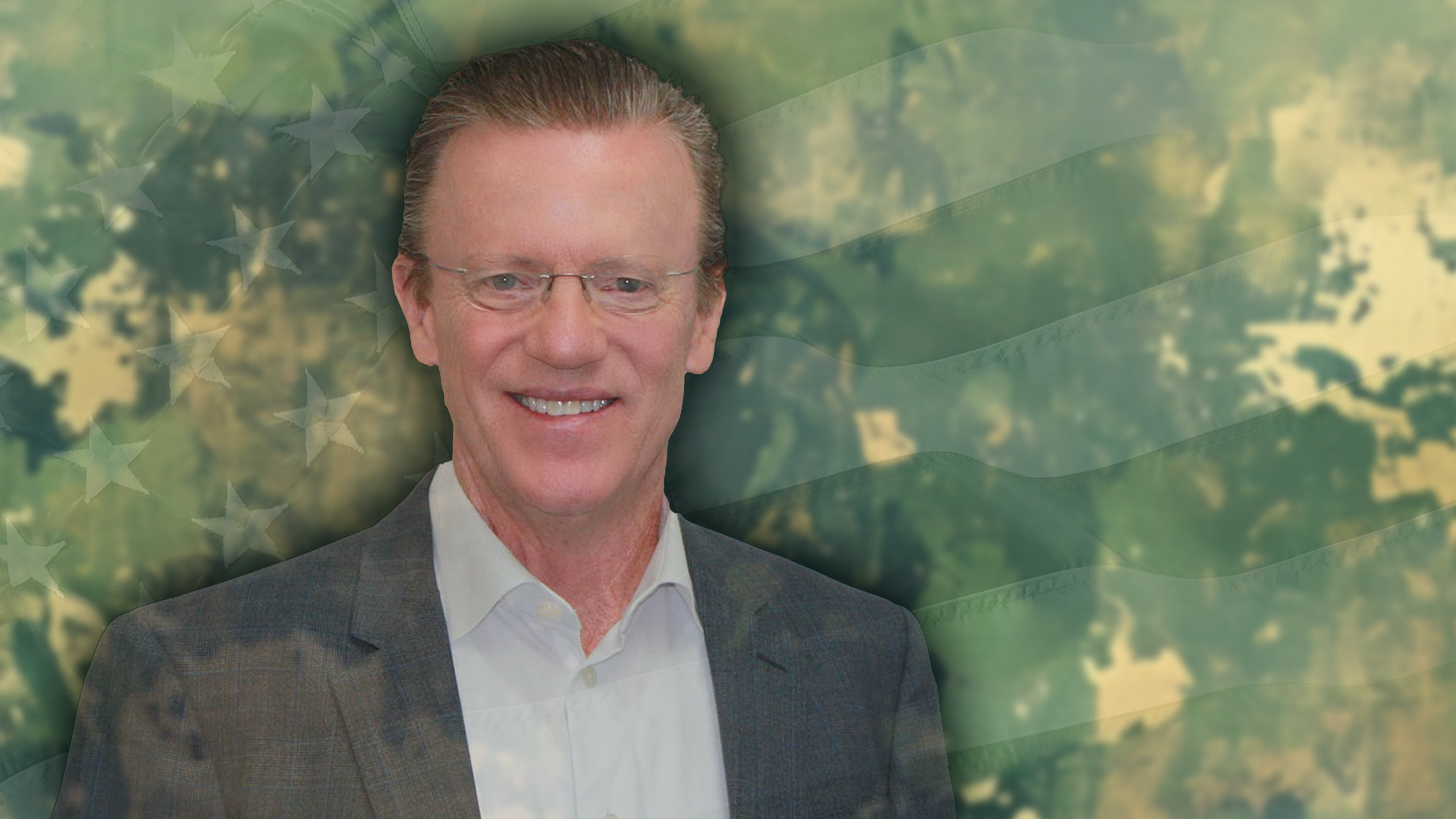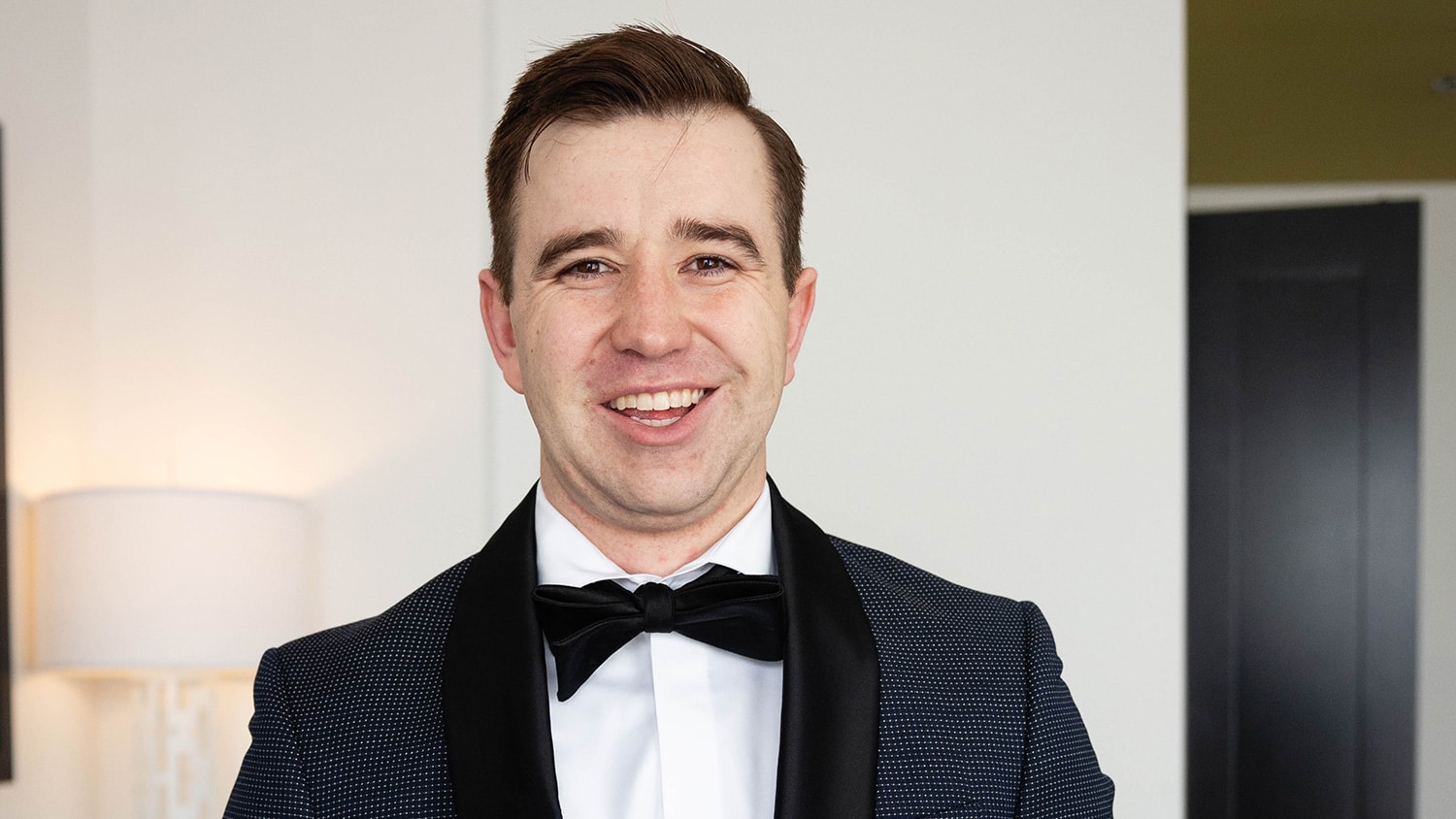Meet the newest startups heading to the Andrews Launch Accelerator

Over the last decade, NC State has become one of the top schools for entrepreneurship in the nation. And with dozens of budding entrepreneurs graduating each year, Poole College of Management’s Andrews Launch Accelerator (ALA) program helps selected startups get off the ground with funding, resources and guidance.
Through a 14-week summer program, startup founders further develop their concepts and build their companies – covering key entrepreneurial topics such as customer discovery, product development and fundraising. At the end of the program, they participate in Demo Day where they have the opportunity to pitch their visions to the top investors in the Raleigh-Durham area.
Meet the founders of ALA’s 2021 cohort.
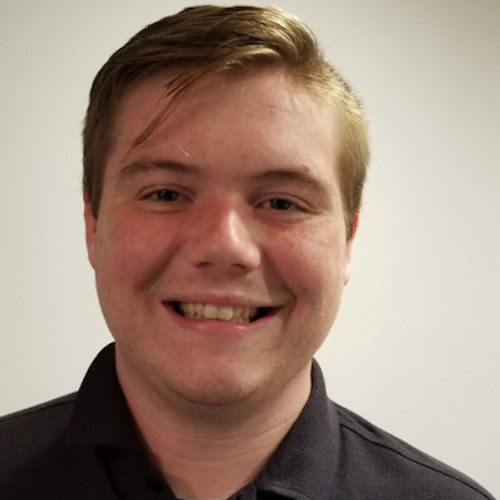
Micah Ulrich | Flux Hybrids
Flux Hybrids was started in NC State’s Engineering Entrepreneurship program in 2019 by a couple of climate-conscious car guys. The company offers a plug-in hybrid conversion that can convert any car into a hybrid at a price point that pays for itself within the remaining life of the vehicle. Unsatisfied with how slow the automotive industry was moving toward cleaner options, Flux Hybrids founders realized that the best way to accelerate this transition was by making it profitable to use cleaner technology. Today, Flux Hybrids is focused on converting as many vehicles as possible to reduce emissions and help businesses transition to a cleaner, more cost-effective future.
Share a bit about your background.
I was born in Statesville, N.C., and grew up there as well as South Africa and Uganda for two years each. I came to NC State in 2016 and majored in mechanical engineering. Most of my time in undergrad was spent working with Solarpack, NC State’s solar car team. I graduated in the summer of 2019 and started working on my master’s in mechanical engineering immediately afterward. I’ve always wanted to build things – even as a little kid, I always wanted to be an “inventor.” So for me, engineering and building a company is a dream come true.
Tell us about your company, Flux Hybrids.
Flux Hybrids has developed a system that can convert any vehicle into a plug-in hybrid at a price point that pays for itself in savings within the remaining life of the vehicle. This idea actually came up because my parents bought some plug-in hybrids during my second year of college and despite how they looked, I was amazed at the acceleration they got from the electric motor. On top of that, they average 68ish mpg. And when you start diving into it, hybrid drivetrains are just better than traditional, but they aren’t the majority yet due to cost. Our goal became to get the best technology on the road as fast as possible by making it an investment, where companies would actually see tangible financial benefits for reducing their carbon footprint.
Why did you decide to apply to become part of the Andrews Launch Accelerator (ALA) Program?
We heard about the Andrews Launch Accelerator in NC State’s engineering entrepreneurship program in 2019 and thought it’d be a great fit. Three applications later, we got in and found out just how great of a fit it was. It provides a massive amount of networking opportunities, which are crucial for transitioning from a recent college graduate to a business owner. As recent college graduates, you don’t necessarily have the network to get warm introductions to investors, potential customers or strategic partners. Andrews provides all these connections in a way that empowers us to tap into the Triangle entrepreneurial ecosystem and leverage it for everything it’s worth.
When you found out you were accepted to the ALA, what was your reaction to the news?
After the initial excited fist pump, I called my mom and my team to let everyone know.
What are you most hoping to get out of the program?
I think the biggest thing we can get from this program is the people. Building relationships with mentors in Raleigh will have a hugely positive effect on my personal growth and our growth as a company.
Where do you hope to see Flux Hybrids as a company in five years?
The next big electric mobility startup to go public for +$1 billion through a special-purpose acquisition company (SPAC).

Natalie Barbu | Rella
Rella’s mission is to empower and help micro-influencers grow their business in an industry that is rapidly evolving and scaling. Rella is an all-in-one social media management tool made for influencers by an influencer. The application will allow users to manage all their platforms in one place and monetize by connecting them with brands. It will allow influencers to build meaningful relationships with these brands, not just transactions. It is about helping influencers grow and manage their business in every way.
Share a bit about your background.
I have lived in Charlotte, N.C. since I was nine years old. I actually started my YouTube channel in 2011, when I was 15 years old. I never played any sports and wasn’t into extracurricular activities in school so YouTube was that extracurricular activity for me. I ended up choosing to go to NC State because I wanted to study industrial engineering. Both my parents studied industrial engineering and they always encouraged me to go into engineering.
Throughout my college experience, I was still doing YouTube and my channel was growing. After college, I worked at Accenture and nine months later was able to quit because I ended up making more money from YouTube and social media than my full-time job. I ended up working on my YouTube channel full-time, started a podcast and also started a social media agency. I began consulting micro-influencers to help them grow and monetize their brand, along with helping brands facilitate influencer marketing campaigns and their social media strategy. That is where the idea for Rella came to me.
I wanted to create a platform that would help influencers manage and monetize their social media because I never found an application or platform that treated influencers as a business and gave them the tools to succeed.
Tell us about your company, Rella.
We are creating a mobile and web application for social media. Users will be able to easily manage all of their social media platforms while streamlining the process of connecting with relevant brands for monetization. As an influencer, this is something that I have been looking for and my colleagues have, as well. Influencers are running successful businesses, but the tools out there aren’t made for the influencer business – they are built for brands. We need a tool that allows influencers to run, manage and monetize their business so they can work on their craft and continue to grow the industry. Rella is that tool.
Why did you decide to apply to become part of the Andrews Launch Accelerator (ALA) Program?
As an NC State alum, I always regretted the opportunities I never took while I was a student. So when I had thought of the idea for Rella, I knew I would need help. I looked up any resources available at NC State since I knew it was ranked one of the best universities for entrepreneurship and that is when I found out about Andrews. Once I partnered with my co-founders, who also are NC State alums, we knew we had to apply to the program.
When you found out you were accepted to the ALA, what was your reaction to the news?
We were so excited when we found out we got into ALA, we had to do a double-take on the email. We were just happy that our school gave us a chance and believed in our product. When you are starting a company, there is a lot of rejection and pushback, so it is nice to see some validation.
What are you most hoping to get out of the program?
We are hoping to absorb as much information as we can but also form valuable connections and relationships. We are looking forward to keeping those relationships even when the accelerator is over.
Where do you hope to see Rella as a company in five years?
We hope to see Rella as the leading tool brands and influencers use to connect. We want Rella to be known as the application you need to download if you are a micro-influencer and build a strong community of micro-influencers.
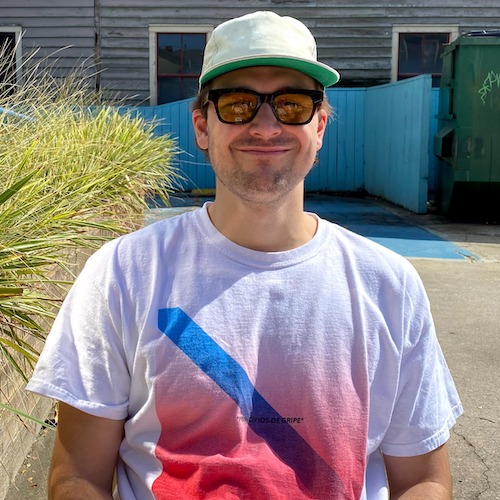
Ricardo Sucre | Casalú
Casalú is a rum-based hard seltzer created for Latinos to be shared with all. Nuestro para todos: ours for all. The name, Casalú, was born from the idea of Casa (Home) + Salúd (Cheers) – paying homage to our roots while welcoming – with open arms and raised glass – anybody who enjoys the Latino vibe.
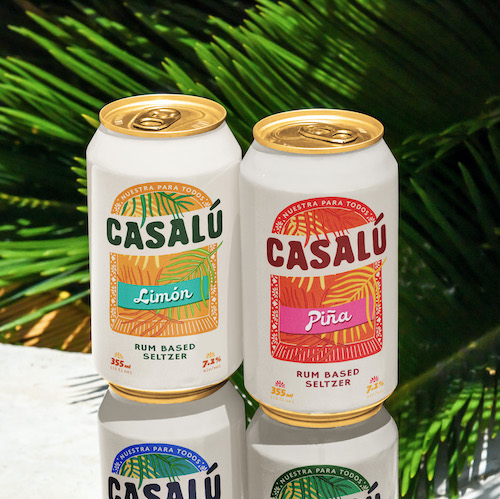
Share a bit about your background.
I was born in New York City, where my parents were at the time, before moving back home to Caracas at the age of three where I lived until I graduated high school. My path to NC State was pretty serendipitous. I had an aunt from each side of my family living in Raleigh, so naturally, my parents loved NC State and it aligned with what I wanted to study, ironically: “anything but business.” I started out in industrial design but quickly switched to industrial engineering.
I’m an industrial engineer on paper and a creative thinker in real life. Since graduating in 2018, I’ve been working in sports media for corporate giants like Bleacher Report and CBS Sports. My first venture, The Halftime, was actually in the sports world, focused on bridging the gender gap in sports without excluding anyone. I love fashion, sports, music, cooking and the intersection of it all – culture. I’m always chasing what’s cool.
At Casalú, I serve as the CEO but the team refers to me as “The Hipster” because I have a knack for spotting the next cool thing – what or who will resonate with today’s culture. I’m excited to be able to not just spot but to build the next cool thing – to build something for today’s culture, informed by my Latin American roots.
Tell us about your company, Casalú.
The idea for Casalú hit me at the pool. Last summer I was spending a lot of time at the pool, and a refreshing drink in hand quickly became a requirement. I hate beer, so hard seltzer was the natural drink of choice, but as I began to try all the different seltzers, I felt a disconnect. I couldn’t relate to any of the brands I was drinking – their vibe, their style – and nothing matched the reggaeton music in the background.
After seeing the success of the vodka-based seltzer High Noon, I wondered why there wasn’t a seltzer with rum – the spirit of choice back in Venezuela. That was when I decided to make a rum-based hard seltzer that appeals to me, to my friends, to Latinos: our music, our vibe, our culture. That weekend I bought a soda stream and started making my own rum-based hard seltzer, forcing every friend who came over to try it and give me feedback.
After months of testing – read: drinking – my co-founders and I decided to go all-in, start the company and build something for Latinos by Latinos. If you look at the marketplace, there are many mainstream brands and several good niche brands but nobody is properly meeting the needs of the rapidly growing Latino audience in the U.S. We believe we are the first option that authentically connects with every element of the Latino community.
Why did you decide to apply to become part of the Andrews Launch Accelerator (ALA) Program?
Knowledge. This was our first time starting a true venture and the support system that the team at the ALA has built is unparalleled. Being a part of the Accelerator has significantly increased the pace of our startup at this stage in the most positive way. Big shout out to Chip Andrews and Lewis Sheats for building such an amazing program.
When you found out you were accepted to the ALA, what was your reaction to the news?
We were extremely excited but anxious to get to work. The quality of experts in the panel that selected our startup was incredible and that gave us an unbiased sense of validation that we hadn’t felt before. Looking back at it, it will likely be one of the most important wins for the company in the early stages.
What are you most hoping to get out of the program?
I think there is a bit of everything but so far what I have learned the most is the power of networks and ALA has created an amazing one. Our executive-in-residence is a venture capitalist who spent his career in the C-suite of multi-billion dollar brands, so that kind of exposure is priceless at our stage. I am looking forward to leaving the program having developed deep relationships with industry experts that allow us to ask questions and seek wisdom whenever we need throughout this journey.
We are extremely thankful to the Accelerator team and the access they have provided for a company as early as ours. We are looking forward to people in the ecosystem who see this and believe in our vision to reach out and participate in Casalú.
Where do you hope to see Casalú as a company in five years?
Our dream is to build a brand like Red Bull, where their authentic connection to their audience’s lifestyle allows them to be part of many different things that inform culture – music, fashion and sports. We want to become that for Latin culture. It all starts with seltzer… that happens to be bussin bussin.
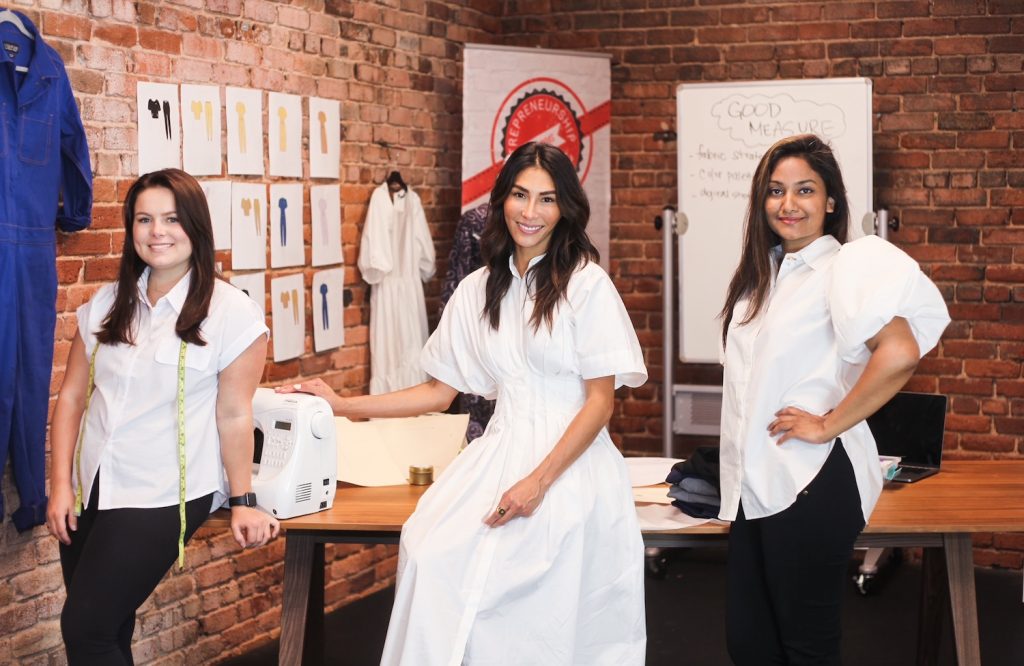
Alysha Totemwongs, Sabrina Martin and Mushfika Mica | Good Measure
Good Measure is a modernized and sustainable approach to medical apparel. Dedicated to both form and function, we look at utilitarian pieces through a renewed lens to create workwear that empowers healthcare professionals to look and feel their best while caring for others. Our name Good Measure comes from a quote seen on a statue of Hygeia (goddess of health). It was inscribed with “All in Good Measure” by Greek poet Cleobulus. When taken literally it means when done or added in addition to other things in order to make certain that something is successful or complete.
When it comes to medical apparel, there is generally a compromise between utility and style. Good Measure believes that you shouldn’t have to sacrifice your personality when putting on your uniform. Style, functionality, and quality should all be in good measure. Our vision is to add a new sense of joy and intention to modern workwear for an industry that touches so many lives.
Share a bit about your backgrounds.
Sabrina Martin: I’m originally from Kernersville and I graduated with my bachelor’s degree in fashion development this year and am excited to pursue my master’s in textiles this fall. I love being part of the creative process.
Mushfika Mica: I moved to the U.S. five years from Bangladesh where I studied textile engineering. After completing my master’s in apparel design at the University of Wyoming, I am now a Ph.D. candidate at the Wilson College of Textiles.
Alysha Totemwongs: A California transplant, I have been in Raleigh for over a decade and have watched it flourish. I love the community here. My background has been in sales and business development in the aesthetics and medical device space. I hold a bachelor’s degree in biology from UC-Irvine and an MBA in finance from Duke University’s Fuqua School of Business.
Tell us about your company, Good Measure.
As someone who’s worked in healthcare for over 15 years, I’ve (Alysha) seen the medical apparel space evolve. We have great options today but I saw an opportunity to create a product that is more elevated and tailored to specific needs. There are 18 million healthcare workers, 80% of which are women, yet very little has been done to modernize or innovate design. Good Measure aims to be a premium medical apparel brand, taking a stylish and sustainable approach to outfitting those who serve in healthcare. Our vision is to modernize this space, we are dedicated to innovation with performance styles that embody joy and empower healthcare professionals to look and feel their best while caring for others.
Why did you decide to apply to become part of the Andrews Launch Accelerator (ALA) Program?
The ALA Program is a once-in-a-lifetime opportunity and we knew the network and resources would be invaluable to us as we launched Good Measure. The mentorship and accountability has pushed us outside of our comfort zone and encouraged us to #thinkanddo better.
When you found out you were accepted to the ALA, what was your reaction to the news?
The calls and text messages were flying! We were absolutely thrilled.
What are you most hoping to get out of the program?
The mentorship and access to entrepreneurs is incredibly beneficial as we design and grow our business to scale. The peer support and feedback has challenged us to think strategically, revisit our assumptions and build a stronger foundation for our business.
Where do you hope to see Good Measure as a company in five years?
We hope the Good Measure brand continues to grow and becomes ubiquitous within the healthcare and technical apparel space. It is our mission to focus on our customer, innovation and sustainability without compromising on style and design.
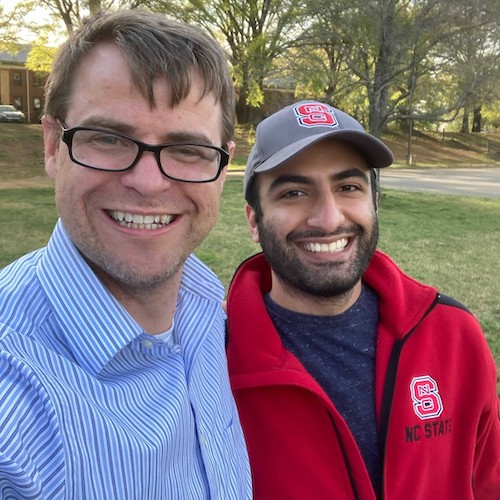
Samim Mirhosseini | Docable
Docable is an online EdTech tool that will enable computer science instructors to author and publish more engaging tutorials by providing them the infrastructure and tooling needed for making their content interactive. Docable can help with computer science lessons, courses, boot camps, technical tutorials and coding blogs. Find out more details and examples on https://docable.cloud.
Share a bit about your background.
I started programming when I was 15. I was always interested in building things and computer science was a field that would give me many options. I studied for my bachelor’s degree at NC State and then right after that I started working on my Ph.D. I’ve been a student at NC State since 2015 – finishing my undergraduate degree in 2018 and immediately started working on my Ph.D. My major has been computer science for both my undergraduate and Ph.D.
Tell us about your company, Docable.
The problem is that companies need people with advanced skills, but in traditional university classrooms, many advanced computer science subjects are difficult to teach. That is because of the infrastructure they usually require before learning can happen. As an alternative to courses, there are boot camps and online tutorials for students to use. But boot camps are very expensive. And although online tutorials are widely accessible, they become stale and don’t provide support or integration for infrastructure and feedback that students need. Docable helps students and the instructor spend less time and resources to set up the infrastructure and focus on learning, and at the same time have content that is widely accessible similar to tutorials.
Why did you decide to apply to become part of the Andrews Launch Accelerator (ALA) Program?
Since I’ve always been on the technical side of making things as an engineering student, I wanted to learn more about the business side of startups as fast as I could. The ALA program seemed perfect for what I needed.
When you found out you were accepted to the ALA, what was your reaction to the news?
I was so excited to be informed we’re accepted to the ALA program. I had so many plans for the summer and knew being in ALA will help support those plans. I knew ALA is a very competitive program, but I was optimistic about it from the beginning because I really wanted to focus on Docable over the summer.
What are you most hoping to get out of the program?
I was hoping to learn more about market research, customer discovery, as well as making connections with other entrepreneurs – all of which the ALA has definitely helped with.
Where do you hope to see Docable as a company in five years?
I want Docable to expand support for hosted technical documentation and interactive learning playground for software companies and their associated technologies.
This post was originally published in Poole College of Management News.
- Categories:
